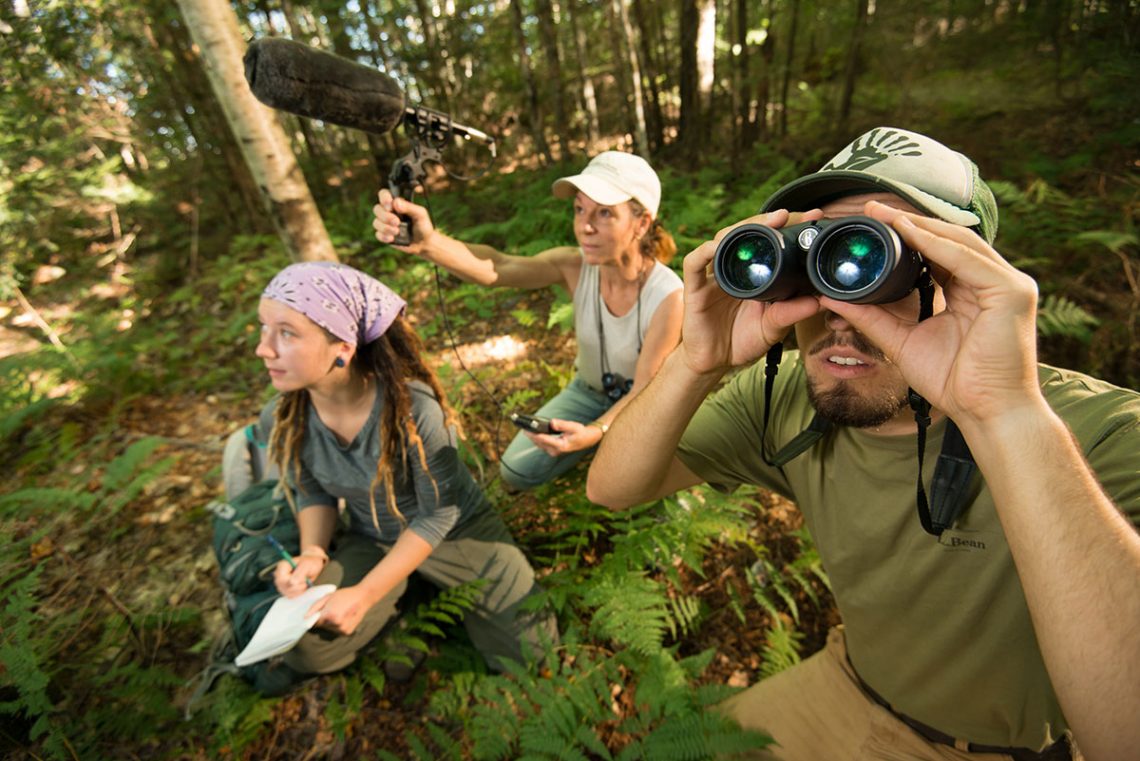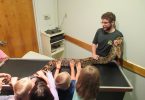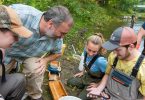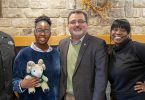Small, private, liberal arts education is experiencing mounting pressure to demonstrate its value and differentiate itself from online, for-profit, community college, and other enterprises.
The sustainability science-based curriculum on which Unity College is based has a value proposition all its own, but America’s Environmental College is additionally developing a variety of solutions to remain relevant to employers, remain sought-after by students and faculty, and assure the value of the Unity College degree for the next 50 years.
Reinventing the first two years of the residential experience will set Unity College apart in a powerful way.
Reimagining the First Two Years
“We are interested in nothing less than the transformation of small, private higher education,” Dr. Melik Peter Khoury, Unity College President, said. “And we believe that our identity makes us well positioned to experiment with new formats for higher
education, as evidenced by the increasing engagement of philanthropists with our cause.”
Earlier this year, the Davis Educational Foundation awarded Unity College a $10,000 Presidential Grant to research innovations to the first- and second-year educational experience as part of an ongoing, multi-year effort aimed at creating a unique, value-added undergraduate experience at Unity College.
Khoury said the Davis Grant — plus another $50,000 grant obtained this summer in close succession — are “important endorsements of Unity College’s ability to leverage partnerships and convene discussions about the way forward … not just here, but across the landscape of small private colleges, nationally and internationally.”
The new money will help realize key goals of the strategic plan, which include providing a unique early college experience, extending the Unity College education beyond the borders of the physical campus, and increasing all types of diversity within the student body.
Chief Student Success Officer Dr. Sarah Cunningham said the process of reimagining the first two years of a Unity College residential experience was ongoing long before the Davis Grant.
“Last semester, we engaged the faculty, staff, and students by soliciting input through community meetings, student focus groups, and faculty professional development workshops,” Cunningham said. “We combined that dialogue with institutional data on student satisfaction and success, with our research on innovative trends in the industry, and with work done by the Marketing Department on a strategic branding initiative.”
Cunningham said one initial result was the identification and research of existing pedagogical frameworks that support Unity College’s ideas and are grounded in a body of research on effectiveness. Director of Teacher Education and Associate Professor of Science Education Dr. Jennifer Cartier and Associate Professor of Writing Dr. Stephanie Wade led this effort.
Associate Professor of Wildlife Biology Dr. Brent Bibles and Associate Professor of Conservation Biology Dr. Matthew Chatfield tested our concepts to envision how new educational structures, morphology, and accounting can support the kind of practical, experiential education our students crave.
Sustainability Engagement and Data Coordinator Jonathan Gibbons and Resident Director and Student Activities Coordinator Christopher Ouellette dug into the details of how a truly 24/7 residential living-learning community could enhance education and provide students opportunities to engage in significant professional work and leadership opportunities. And Associate Professor of Sustainable Enterprise Dr. Janis Balda and Assistant Professor of Conservation Law and Environmental Policy Zach Falcon ensured our initial ideas would make the college and our students interesting and effective partners for local and global organizations.
“Our work will continue through the beginning of the semester as we do some follow-up research, seek more outside expertise, connect with professional networks, and craft a final proposal to bring to senior staff and the president for consideration,” Cunningham said.
“We want to know, what is the inherent value in living and learning together as a community of future environmental professionals, and then in what should we invest to support those areas,” President Khoury said. “Maybe it’s more field research. Maybe it’s different residence halls. Maybe it’s a different academic schedule. The residential campus is our heritage, our future and something we will always invest in as a place-based environmental college. However, we will go where the research leads us, in order to preserve and protect what’s unique about the Unity experience while transforming it for the environmental century.”






